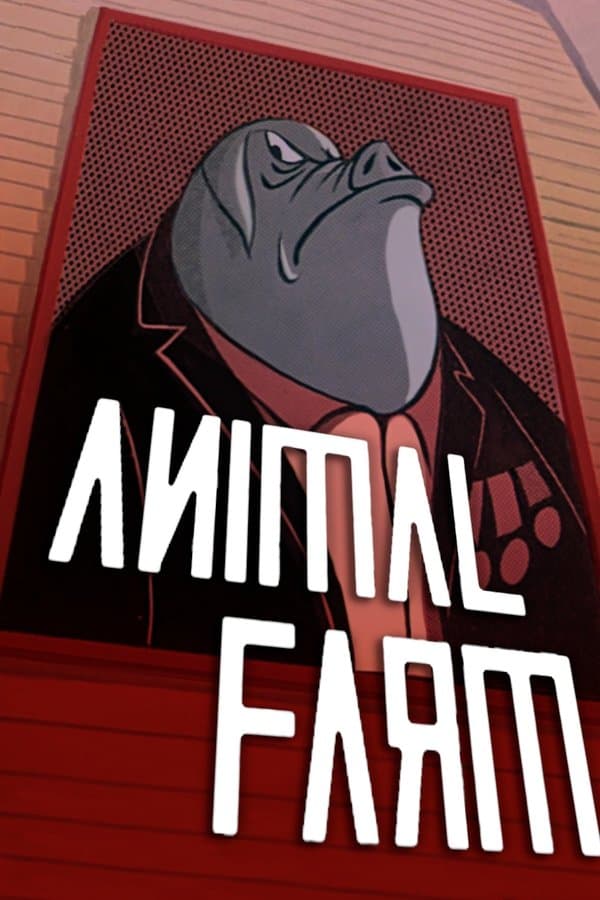
Animal Farm
1954 • Animation, Drama • G
Animals on a farm lead a revolution against the farmers to put their destiny in their own hands. However this revolution eats their own children and they cannot avoid corruption.
Runtime: 1h 13m
Why you should read the novel
George Orwell’s novel, Animal Farm, delivers a powerful message with sharp wit and vivid allegory, far beyond what the 1954 film conveys. Through Orwell’s incisive prose, readers gain a deeper understanding of the manipulation of language and power that animates the farm’s tragic tale. The book invites readers to reflect on real-world politics and the consequences of totalitarian rule, challenging them to detect the subtle shifts in freedom and equality.
Reading Animal Farm allows you to engage directly with Orwell’s carefully constructed satire, experiencing the gradual transformation of the farm through the eyes of diverse characters. The nuances and ironies embedded in Orwell's narrative style are more impactful on the page, fostering critical thought and emotional resonance. Immersing yourself in the novel ensures no important detail or allegorical subtlety is lost or simplified.
Unlike the movie, the book presents a richer, more ambiguous ending and gives more background to the characters and their motivations. With its layers of meaning and unforgettable quotes, Animal Farm offers a literary experience that stands the test of time. For those seeking a thought-provoking, enduring exploration of power and corruption, reading the novel is undoubtedly the most fulfilling option.
Adaptation differences
The 1954 animated adaptation of Animal Farm introduces several notable deviations from George Orwell’s novel. One of the most substantial changes is the film’s ending; rather than concluding with a bleak, ambiguous merging of pigs and humans, the movie opts for a more optimistic tone. In the film, the animals rise up and overthrow Napoleon and his regime, suggesting hope for a future rebellion—an outcome absent from the novel’s somber finale.
Characterization also differs. While the novel focuses on the disillusionment and changing attitudes of many animals, the film centers more on a few key characters, particularly Boxer and Napoleon. Some characters, such as Clover, have reduced roles or are omitted, and certain symbolic scenes and conversations that contribute to the book’s depth are glossed over or excluded entirely.
Another major alteration lies in the film’s simplification of the narrative structure. The movie truncates several events for time, compressing or omitting the gradual downfall of the ideals of Animalism. Consequently, the slow, unnerving erosion of equality and the increasing complexity of the pigs’ manipulation are less fully realized, potentially diluting the impact of Orwell’s warning about totalitarianism and propaganda.
Additionally, the adaptation changes the tone and subtlety of Orwell’s satire. The book’s nuanced commentary on Soviet Russia, politics, and human nature is streamlined in the film for broader audience accessibility. This makes the movie less directly challenging than Orwell’s prose, highlighting the importance of the source text for those seeking a comprehensive understanding of the novel’s message.
Animal Farm inspired from
Animal Farm
by George Orwell











